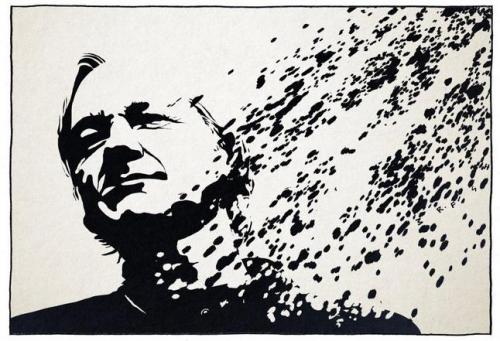Julian Assange, and Press Freedom, on Trial in London
- Opinión

The role of the free press is to hold power accountable, especially those who would wage war. Press freedom itself is currently on trial in London, as Julian Assange, founder and editor-in-chief of the whistleblower website Wikileaks, fights extradition to the United States over an ever-evolving array of espionage and hacking charges. If extradited, Assange faces almost certain conviction followed by up to 175 years in prison. His unjust imprisonment would also shackle journalists worldwide, serving as a stark example to anyone daring to publish leaked information critical of the U.S. government.
U.S. prosecutors allege that Assange conspired with Chelsea Manning, a Private in the U.S. Army, to illegally download hundreds of thousands of war logs from Iraq and Afghanistan, along with a huge trove of classified cables from the U.S. State Department.
The first disclosure from this massive whistleblower release was a video that Wikileaks called “Collateral Murder.” It was recorded aboard a U.S. Apache helicopter gunship as it patrolled the skies above Baghdad on July 12, 2007. The Apache crew recorded video and audio of their slaughter of a dozen men on the ground below, including a Reuters cameraman, Namir Noor-Eldeen, 22, and his driver, Saeed Chmagh, 40. After the initial high-calibre machine gun attack, a van arrived to help the wounded. The Apache crew received permission to “engage” the van and opened fire, tearing apart the front of the vehicle, injuring two children in the van. Reuters had unsuccessfully sought the video for years.
Before long, The New York Times, The Guardian and Der Spiegel had worked together with Wikileaks and Assange, publishing stories based on the disclosures. They detailed war crimes committed by U.S. forces in Iraq and Afghanistan, torture at CIA blacksites, abuses at the U.S.’s notorious Guantanamo Bay prison camp, and cynical diplomatic dealings by State Department officials.
“It is a clear press freedom case,” Jennifer Robinson, one of Julian Assange’s attorneys, said recently on the Democracy Now! news hour. “The First Amendment is understood to protect the media in receiving and publishing that information in the public interest, which is exactly what WikiLeaks did.”
The British authorities have kept Assange in almost complete isolation in London’s high security Belmarsh prison since arresting him in April, 2019, dragging him out of the Ecuadorian embassy. Granted political asylum by Ecuador, he lived inside the dark, cramped embassy for over seven years. When a rightwing president took power in Ecuador, he revoked Assange’s asylum and allowed the arrest.
Nils Melzer, the United Nations Special Rapporteur on Torture, visited Assange in Belmarsh, and reported aftwards, “I spoke with him for an hour…then we had a physical examination for an hour by our forensic expert, and then we had the two-hour psychiatric examination. And all three…came to the conclusion, that he showed all the symptoms that are typical for a person that has been exposed to psychological torture over an extended period of time.”
The conditions of Assange’s imprisonment have only worsened during the COVID-19 pandemic. He hasn’t spoken publicly in court, other than once, shouting “Nonsense!” in response to one of the many unsupported claims by the U.S. prosecutor. The presiding magistrate threatened to have Assange removed. Experts have lined up to defend Assange, including legendary Pentagon Papers whistleblower Daniel Ellsberg.
In 1971, Ellsberg released the Pentagon Papers, the secret history of the United States’ war in Vietnam, documenting how successive administrations had lied to the public about the war. Like Assange, he provided the leaked documents to the New York Times. Also like Assange, Ellsberg was charged under the Espionage Act, and could have spent life behind bars. Ultimately, a judge threw out his case, when it was revealed that President Nixon had ordered criminal break-ins seeking derogatory information on Ellsberg.
In a prepared statement in Assange’s defense, Ellsberg reflected on the importance of the Wikileaks disclosures. “I consider them to be amongst the most important truthful revelations of hidden criminal state behaviour that have been made public in US history,” he said. “The American public needed urgently to know what was being done routinely in their name, and there was no other way for them to learn it than by unauthorized disclosure.”
Many of the war crimes exposed by Wikileaks, in cooperation with established news organizations around the world, occurred under President George W. Bush. Assange’s prosecution began under President Barack Obama. Then-Vice President Joe Biden called Assange a “high-tech terrorist.” Now, President Trump, who said during his 2016 campaign, “WikiLeaks, I love WikiLeaks,” wants to lock up Assange and throw away the key. No president, of any party, should be allowed to threaten the free press. Indeed, it is essential to the functioning of a democratic society.
The original content of this program is licensed under a Creative Commons Attribution-Noncommercial-No Derivative Works 3.0 United States License. Please attribute legal copies of this work to democracynow.org.
Del mismo autor
- Putin’s war on Ukraine could spark a nuclear catastrophe 04/03/2022
- La persecución de Biden contra Julian Assange 18/01/2022
- Biden’s persecution of Julian Assange 06/01/2022
- ¿Reconstruir mejor o construir más bombas? La elección es clara 13/12/2021
- Facebook Papers: cumplicidade no ódio, nas mentiras e na violência 28/10/2021
- Es hora de eliminar a Facebook de nuestra lista de amigos 11/10/2021
- El espía que se metió en tu teléfono 20/09/2021
- De Kabul al río Bravo, Estados Unidos crea crisis de refugiados 31/08/2021
- Después de décadas de guerra, el pueblo afgano merece la paz 23/08/2021
- Código rojo: la emergencia climática exige una acción inmediata 16/08/2021
Clasificado en
Clasificado en:
Julian Assange
- Craig Murray 15/03/2022
- Peoples Dispatch 15/02/2022
- Jake Johnson 24/01/2022
- Anish R M 17/01/2022
- RBA 04/01/2022








